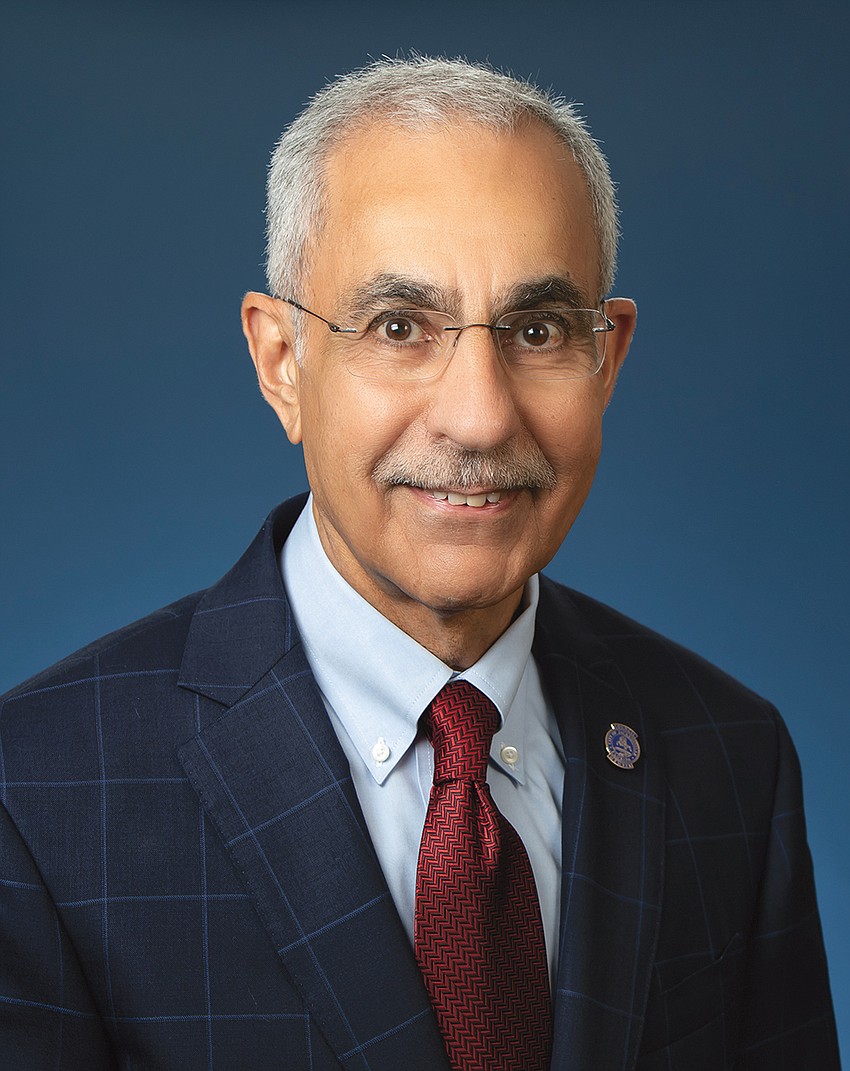
The city of Jacksonville is on the hook to make a record payout for economic development incentives during the next fiscal year, prompting talks of budget cutting and a slowdown in requests for economic development incentives.

Jacksonville City Council member Will Lahnen refers to the city’s looming $74.1 million in commitments to private developers as the “cash incentive cliff.”
“Never have we had such a one-time need on cash incentives,” he said. “That’s the risk you take with these completion grants, because they weren’t even all approved in the same year. They were approved in this and that year, but the timing of construction is what dictates the payout. And so now we’ve got this $75 million commitment.”
Most of that funding is for two projects:
• $25.8 million for Jaguars owner Shad Khan’s Shipyards project, which includes the One Shipyards Place office building and Four Seasons Hotel and Private Residences. That is a portion of a $129.75 million incentive package Council approved in 2023.
• $39 million for the Miami-based Related Group’s proposed 25-story Southbank residential tower. The funding is technically a completion grant but will be placed in escrow in 2025-26 and used for quarterly payments on the project. It’s part of a $58.79 million package approved by Council in 2024.

Other expenditures include $4.96 million for the Greenleaf & Crosby Building at 208 N. Laura St., an incentive approved in 2023.

A $6.03 million grant for the Jones Bros. Furniture Co. building at 502 N. Hogan St. originally was set to be paid in 2025-26 but has been pushed back a year, according to the Downtown Investment Authority.
Other commitments for 2025-26 include $4.1 million for Office of Economic Development projects and a $238,000 grant for the Home2 Suites by Hilton Jacksonville Downtown in Brooklyn, which opened in 2024.
To put the amount of 2025-26 cash incentives in perspective, Lahnen points out that the city’s personnel budget for departments outside of public safety is about $115 million in the $1.88 billion 2024-25 fiscal year budget..
Lahnen said that in 2025-26, the city will spend more on incentives than on the individual budgets of the Public Works Department; Parks, Recreation and Community Services Department; and the public library system.
In a year when incoming tax revenue is not projected to rise significantly, and with Council auditors projecting deficits of up to $105 million in the next four years, the incentives are among several factors compelling Council members to look at cutting spending.
Meanwhile, Mayor Donna Deegan has asked city department heads for proposals on how they would reduce their budgets by up to 10%.
Among other budget pressures in the coming fiscal year, raises approved in 2024 for police officers, firefighters and corrections officers added $100 million in expenses over three years, plus $21 million in increased pension costs in the next fiscal year.
Like private businesses, the city also must contend with increasing costs for materials and labor. Then there’s the looming big-ticket expense of replacing the city jail – the John E. Goode Pretrial Detention Facility –at a cost estimated as high as $1 billion.
With less than three months left before Deegan is required to submit her proposed 2025-26 budget to Council, here’s a look at some of the dynamics the city is facing.
Incentive requests
Cost-consciousness already appears to have affected the number of requests for economic incentives coming before the city.
The city Office of Economic Development, which oversees incentives outside of Downtown, has yet to submit a request for a cash incentive for
a code-named project in 2025. This comes after OED made at least six such requests last year on unidentified projects, which often involve multimillion-dollar packages of public funding that include cash incentives.
In late 2024, Lahnen and Council member Nick Howland asked office staff to renegotiate an agreement on one of those projects, an expansion of Intercontinental Exchange Inc. that had been code-named Project Paper Company.
The revisions impelled by Howland and Lahnen lowered the amount of cash grants for the project by $6 million while increasing the amount of Recapture Enhanced Value Grant funding from $10 million to $16 million.
In February, the Mayor’s Budget Review Committee gave OED the authority to submit legislation for a $1.1 million REV grant for Project Rotunda, described as a Jacksonville manufacturer planning to spend $44 million to double the size of its operation.

Ed Randolph, OED executive director, said the city and manufacturer were working to finalize an economic development agreement and that he expected the legislation to be filed soon.
The Downtown Investment Authority, which oversees incentives within the eight districts that make up Downtown Jacksonville, has filed one request this year for a grant that would be paid from the city general fund.
That $2.56 million request, contained in Ordinance 2025-0183, would go toward a proposed $5.8 million resurrection of a vacant three-story building at 225 N. Laura St. as short-term residential rentals and a restaurant.
During the March 19 DIA board meeting, DIA CEO Lori Boyer described the legislation as a “test case” for a cash incentive.
Land swaps vs. outright purchase
Cash incentives have become part of a debate among elected leaders over two alternatives for the city’s plan to purchase the Interline Brands Inc. building at 801 W. Bay St. to provide for the University of Florida graduate campus in LaVilla.
One option, supported by Deegan and the DIA board, is to exchange a 1-acre parcel in Riverfront Plaza and an option on an adjacent lot for the building, which is owned by the Gateway Jax development team.
As part of the deal, Gateway has committed to building a 17-floor tower on the site.

Council member Ron Salem suggested buying the building outright, and Council agreed March 25 to set aside up to $8 million for the purchase. The funding would be replaced by an annual contribution of funding to the city from JEA, which is poised to provide a record amount this year.
Council members supporting Salem’s approach said the land swap would subject the city to a request for cash incentives from Gateway Jax. The group’s principal, Bryan Moll, told the DIA board that building the tower would require at least $20 million in completion grants.
Supporters of the swap say it would allow the city to obtain the Interline building without dipping into city operating reserves and supports the DIA’s mission of disposing of dozens of city-owned properties Downtown for private development.
“I don’t want to do a land swap and then get a big incentive request,” Council member Rory Diamond said at the March 25 Council meeting. “We can always say no (to the incentives). I know Council doesn’t like saying no to things.”
Lean vs. Duval DOGE
In the run-up to the budget discussion, approaches to cutting and streamlining city operations are coming from several sources.
Salem launched Duval DOGE, a local version of the Trump administration’s Department of Government Efficiency. As part of the
initiative, a special Council committee will look for possible budget trims such as duplicated efforts in child services programs and capital improvement projects that may no longer be needed.
The committee also is examining research initiated by Howland showing that some city departments have grown faster than the rates of inflation and population growth.
Deegan says she has been working to improve the city government’s efficiency since she took office in mid-2023, including saving 216,000 work hours among city employees through her 904 LEAN program.
That initiative employs a strategy used by businesses to improve such factors as efficiency, customer experience, project delivery times and collaboration to reduce duplicated effort.
She also is conducting what she described as an “exercise” asking departments if they can reduce their expenditures through such means as attrition.
In what some observers believe could be a preview of the 2027 mayoral race, the budget has sparked back-and-forth criticism between Deegan and Salem. Deegan suggested Salem had done little to make government more efficient, while she had been at the forefront in the effort.
“I’d say, after five years on the Council, welcome to the party. Happy to have him,” she said during an appearance on the WJCT News talk show “First Coast Connect.”
Salem said he worked with former Mayor Lenny Curry to replenish reserves that were badly depleted during Mayor Alvin Brown’s administration, more than doubling the reserves during his first term.
And as chair of the Council Finance Committee in 2024, Salem led a push to eliminate Deegan’s $47 million in proposed spending of reserves on homelessness services and other needs.
Salem has not declared himself a mayoral candidate but said he would consider running if asked.